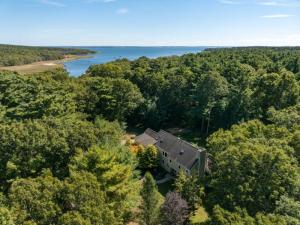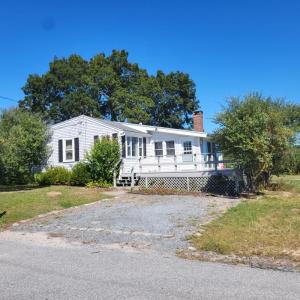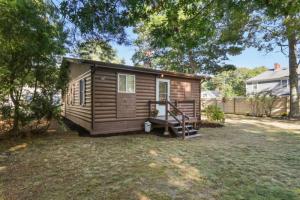Remembering the happy campers at Camp Snipatuit
(During this snowy and cold winter, thoughts of summer camp can bring warmth. Connie Esbach of the Rochester Historical Society looks back on Camp Snipatuit in Rochester.)
The earlier article about the disappearance of Bonney Hill got me thinking of other Rochester places that aren't there anymore. While Snipatuit Pond is still there, the camp that took its name from the pond is no longer active. Established in 1932, Camp Snipatuit was a non-denominational summer camp operated by the Hall family for over 50 years.
Set in a wooded area that reached Snipatuit Pond to the east, the camp buildings were still in existence after the camp closed in 1985. The camp consisted of single-story Craftsman-style recreation buildings set on concrete piers.
The first few were built by Reginald Allen, a Rochester resident, whose property made him a neighbor to the camp. The main building housed a kitchen, dining porch, office, dressing rooms, a large sleeping porch, a big living room and a play porch.
Other structures included a shop, playhouse, infirmary, a counselors' cabin, barn, tack house, and "Tiupatins." Older children who had attained "Pioneer" rank (reached after passing through Hunter, Adventure, Ranger and Explorer levels) lived in Tiupatins, which had a living room, dressing room, sleeping porch and an area with a large fireplace that was separate from the main building.
Campers ranged in age from four to ten years old and came from nearby towns as well as from Boston, New York and Connecticut. They were kept busy with many activities, including playing games like Kick the Can; swimming in the pond; riding horses; sailing and rowing; creating items in the shop; putting on plays; and learning woodsman skills. There were also field trips and lectures.
In the 1950's, the average cost for attending was $700 to $800 a year per child. Margaret D. Hall was camp manager. Among those who worked at the camp were college students from Connecticut and New York, who were hired as counselors.
Some Rochester residents worked as camp cooks. Many of the camp's horses spent the winters at various Rochester properties.
While the Camp like Bonney Hill no longer exists, I would think that the memories created there must live on in the children, now adults, who spent summers there.
































